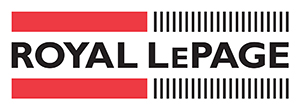
Lenka's Blog
Staging a Home Like a Pro: An Interview with Lenka Eberhardt
Accredited staging professional and realtor Lenka Eberhardt gives us tips, tricks, and advice on staging a home for maximum ROI. Read on!
Staging a Home Like a Pro: An Interview with Lenka Eberhardt
Greg Schryer: What does a staging professional look for when staging a home for pictures or showings?
GS: Some people think of staging as decorating but it’s much more, isn’t it?
GS: Is home staging expensive to do?
GS: What are most common mistakes people make when preparing their home for sale?
GS: Does home staging really make a difference in sale price and DOM* (and do you have an example)?
There you have it—home staging is not really a choice, but a necessity if you want to sell your house fast, efficiently, and profitably. Did you love Ms. Eberhardt expert insights? You can look forward to more conversations with professionals in the field on the Oak Ridge blog at www.oakridgeproperties.ca.
New Rental Housing Unit By-Law in North Bay
January 16th, 2013
With many considering purchase of rental properties within the city, it is important as a buyer, and as a landlord, to consider the implications of a new by-law set in place by the city. If you are currently renting, it is also important to review the by-law in order to determine whether you require a license. As part of the phase in of this by-law, regulated areas have expanded as of January 1st 2013 with the entire city being regulated by 2016.
Health and safety, noise control, protection of residential character and ensuring required essentials are provided for tenants were the main factors behind the creation of this by-law. The city’s goal to provide tenants with the security of knowing they will be living in safe accommodations. Residential dwellings subject to the by-law and requiring a license include those that are:
- Zoned through the city’s zoning by-law 28-80 as R1, R2, R3, R5, RM1 and RM2
- Are within current regulation zones (see below)
- Renting 3-5 bedrooms, with or without the homeowner living in the dwelling
If the homeowner is living in the dwelling, they may rent up to 2 bedrooms without a license. Essentially, the by-law limits the number of rental bedrooms to 5 and requires those renting more than 2 bedrooms to obtain a licence. Obtaining a license requires an inspection to be done by the city of North Bay’s Fire, Building and Zoning Departments in addition t an initial inspection by the ESA. The license is valid for 2 years at a cost of $300 with the option to renew for the same fee at the end of the licensing period.
Currently, the by-law applies to units in the Pinewood, Tibeault Terrace, Cedar Heights and West Ferris areas. City officials will be conduction inspections and responding to complaints and other municipalities in the province are considering instituting similar by-laws.
New Tool for Home Buyers!
December 10th, 2012
Thanks to the Canadian Real Estate Association (CREA) and the Financial Consumer Agency of Canada (FCAC), Canadian consumers are now equipped with a brand new tool designed to help home buyers navigate through the complex process of purchasing a home. The Home Buyer’s Road Map empowers consumers with the knowledge, skills and confidence to make responsible and informed financial decisions with regards to one of the largest and most important purchases they will ever make!
Features of this Tool Include:
- Assessing your financial readiness
- Information on mortgage options and mortgage default insurance
- Government programs available
- Finding a REALTOR and making an offer
- The ins and outs of closing and other related costs
The tool came about after a recent survey done by CREA showed that 70% of young Canadians (18-29) indicated a major need for more information about the financial details involved with purchasing a home.
Having worked with a number of first-time home buyers, I know that there are a number of steps involved and many need help understanding the various financial options available to them. The Road Map is a great tool to help you with making the right financial decision based on your needs and become one step closer to home ownership.
The Road Map can be found at: http://www.crea.ca/resources
Carbon Monoxide Safety
November 30th, 2012
With the cold weather quickly approaching, I can’t stress enough the importance of making sure your Carbon Monoxide detectors are in working condition. Carbon monoxide (CO) can be produced from furnaces, room heathers, fireplaces, hot water heaters and gas stoves. Even warming up your car in the garage can leave CO in your house! In 2009, the City of North Bay passed a by-law requiring all residents with homes possessing a fuel fired appliance and/or an attached garage to install and maintain working carbon monoxide alarms.
Carbon Monoxide, which is also known as the “silent killer”, is a colourless, odorless, and tasteless gas that, when inhaled, reduces the blood’s capacity to transport oxygen throughout our bodies. In high concentrations, its effects can be lethal.
It can be easy to bush-off the symptoms of CO poising (nausea, dizziness, burning eyes, and drowsiness) since they are very flu-like in nature. However, severe exposure can cause brain damage and death. In healthy adults, exposure at 30ppm will induce flu-like symptoms and at 50ppm homes should be evacuated. Exposure at 800ppm can cause death in less than 2 hours.
For this reason it is important to make sure all your fuel burning appliances are properly installed, maintained and vented and to not ignore your CO alarm if it goes off! Sometimes the detector might just need a new battery but everyone is encouraged to contact the fire department for assistance if their alarm goes off. It’s better for them to be there and not needed than the other way around!
For more info as well as tips to prevent carbon monoxide accumulation in your home, please visit:
http://www.cityofnorthbay.ca/fire/CarbonMonoxide.asp
Happy and Safe Heating!

